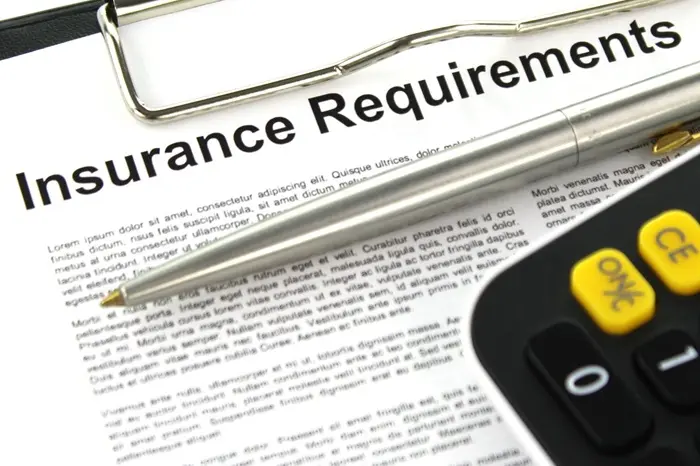Life insurance is an essential part of financial planning. It provides protection for your family in the event of your passing, helping to cover expenses like funeral costs, outstanding debts, and living expenses. However, many people find life insurance premiums to be expensive. While the importance of life insurance cannot be overstated, it is equally important to find ways to save money on your policy. In this article, we will explore practical tips on how to save money on life insurance without compromising your coverage.
Understand Your Life Insurance Needs
Before shopping for life insurance, it is essential to assess your needs. Understanding how much coverage you need is the first step toward finding the most cost-effective policy.
Consider Your Dependents
The primary reason for purchasing life insurance is to protect your dependents. If you are the primary breadwinner in your family, consider the cost of maintaining their lifestyle without your income. Make a list of your dependents, including children, a spouse, or aging parents. Think about how much money they would need to maintain their standard of living and cover any other costs.
Assess Your Debt and Obligations
Another key factor in determining your life insurance needs is your debt load. If you have a mortgage, car loans, credit card debt, or other financial obligations, your life insurance policy should cover these expenses to prevent your family from being burdened with debt after your passing.
Calculate Your Future Expenses
Consider the future expenses of your dependents, such as college tuition or retirement savings. These are long-term needs that should be factored into your life insurance coverage. Keep in mind that some people may need more coverage than others, depending on their specific financial situation.
By carefully assessing your needs, you can avoid purchasing more coverage than you require, which can help save money on your policy.
Shop Around and Compare Quotes
One of the best ways to save money on life insurance is by shopping around and comparing quotes from multiple insurance companies. Premiums can vary significantly between insurers, so it is important to gather several quotes to find the best deal.
Use Online Comparison Tools
Today, there are several online tools available that allow you to compare life insurance quotes from multiple providers. These tools can provide you with an estimate of what your premium might be based on factors like age, health, and coverage amount. While these tools are convenient, it is still a good idea to consult with an agent or broker for a more personalized quote.
Work with an Insurance Broker
Insurance brokers are licensed professionals who can help you navigate the complex world of life insurance. Brokers have access to policies from multiple insurance companies, allowing them to compare prices and recommend the best coverage options for your needs. Working with a broker can save you time and effort in finding the best deal.
Don’t Settle for the First Quote
Many people accept the first quote they receive, but this may not always be the most cost-effective option. It is worth taking the time to compare different policies and providers to ensure that you are getting the best possible deal.
Choose Term Life Insurance
There are two main types of life insurance: term life and whole life. Term life insurance is generally the more affordable option. It provides coverage for a specified period, typically 10, 20, or 30 years, and pays a death benefit if you pass away during that time.
Lower Premiums
Term life insurance tends to have significantly lower premiums than whole life insurance because it does not build up a cash value and is only active for a set number of years. If you are looking for affordable life insurance coverage, term life is usually the most cost-effective option.
Ideal for Temporary Needs
If your primary goal is to cover specific financial obligations, such as paying off a mortgage or supporting your children through school, term life insurance may be the best fit. You can purchase a policy with a term that matches the length of time you need coverage, ensuring you are not paying for unnecessary coverage after your needs change.
Maintain a Healthy Lifestyle
Your health plays a significant role in determining the cost of your life insurance premiums. Insurance companies evaluate your health when setting your premiums, and those in better health generally pay lower rates. By maintaining a healthy lifestyle, you can save money on life insurance in the long run.
Maintain a Healthy Weight
Obesity is linked to a range of health issues, including heart disease, diabetes, and high blood pressure. These conditions can lead to higher life insurance premiums. Maintaining a healthy weight through a balanced diet and regular exercise can help keep your premiums low.
Avoid Smoking
Smoking is one of the most significant factors that can increase your life insurance premiums. Smokers are at a higher risk of developing health problems like lung cancer, heart disease, and respiratory issues. If you smoke, quitting can result in lower premiums over time.
Stay Active
Regular physical activity helps prevent chronic diseases and improves overall health. Insurance companies often offer lower premiums to individuals who engage in regular exercise and maintain a healthy lifestyle.
Keep Your Medical History in Check
Regular check-ups and managing any pre-existing health conditions can help you maintain good health. A clean medical record with no major health issues can result in lower premiums, as insurers view you as less risky to insure.
Opt for a Higher Deductible
A higher deductible means you will pay more out-of-pocket in the event of a claim, but it can lower your monthly premiums. By choosing a higher deductible, you are taking on more of the financial risk in exchange for reduced insurance premiums.
This option may be suitable if you are in good health and can afford to pay a higher deductible if necessary. However, it is important to balance the savings on premiums with your ability to cover the deductible in case of an emergency.
Consider Your Coverage Period
If you are purchasing term life insurance, the length of your coverage period can impact the cost of your premiums. Generally, the longer the term, the more expensive the policy will be. However, if you only need coverage for a specific period, you can save money by choosing a shorter-term policy.
Evaluate the Length of Coverage
Think about how long you need life insurance. If you only need coverage until your children graduate from college or until your mortgage is paid off, a shorter term may be sufficient. Choosing a shorter term can help reduce your premiums while still providing coverage during your most financially vulnerable years.
Reassess Your Coverage Period
As your financial situation changes, you may find that you no longer need as much coverage or that you need coverage for a shorter period. Reassessing your life insurance needs regularly can help ensure that you are not overpaying for unnecessary coverage.
Take Advantage of Discounts
Many insurance companies offer discounts that can help you save money on your premiums. These discounts can vary between insurers, so it is important to ask about available options when purchasing a policy.
Multi-Policy Discount
If you already have other insurance policies, such as auto or home insurance, with the same provider, you may be eligible for a multi-policy discount. Bundling your policies with one insurer can result in significant savings on your premiums.
Group Life Insurance
Some employers offer group life insurance as a benefit to employees. Group policies typically offer lower premiums because they pool the risk among a large number of individuals. If your employer offers group life insurance, consider taking advantage of this option.
Non-Smoking Discount
As mentioned earlier, smoking increases life insurance premiums. Many insurers offer discounts to non-smokers or to those who have quit smoking for a certain period. If you are a non-smoker, make sure to ask about any applicable discounts.
Review Your Life Insurance Regularly
Once you have purchased life insurance, it is important to review your policy regularly to ensure it still meets your needs. As your life circumstances change, your life insurance coverage may need to be adjusted.
Life Events
Life events such as getting married, having children, or paying off debt can change your insurance needs. After a major life event, take the time to review your policy and make any necessary adjustments.
Premium Increases
Some life insurance policies, particularly whole life policies, may increase in cost over time. If your premiums become too expensive, consider shopping around for a new policy or adjusting your coverage.
Conclusion
Saving money on life insurance is possible with careful planning and research. By assessing your needs, shopping around for quotes, choosing the right type of policy, maintaining a healthy lifestyle, and taking advantage of discounts, you can reduce your premiums without sacrificing the protection you need for your family. Regularly reviewing your policy will also ensure that it continues to meet your needs as your financial situation evolves. Life insurance is an important investment, and with these strategies, you can make it more affordable.
Related topics:

























